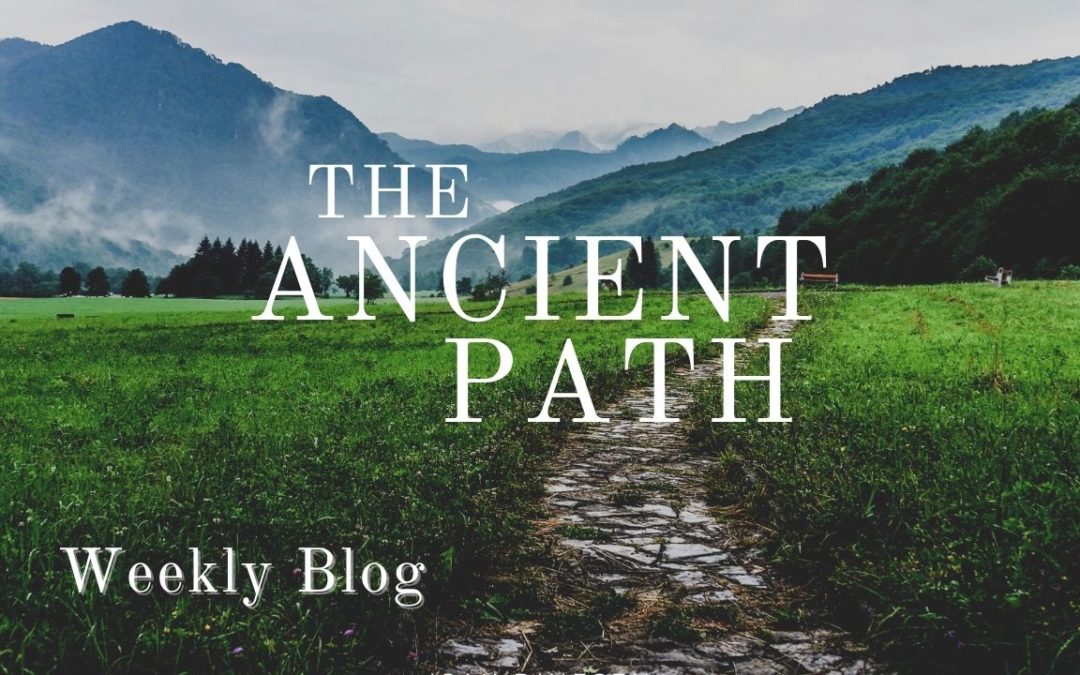REDISCOVERING THE ANCIENT PATH—Week of September 5, 2021
Learn to Laugh: Ps. 126
We are in Week 31 of our examination of Benedict Nursia’s rules for Christian formation. This week we are examining Rules 4.53-54: Learn to Laugh. This rule seems almost out of place, doesn’t it? Over the past few weeks, we’ve discussed the importance of being watchful, maintaining an eternal perspective, and even dying daily. Learning to laugh hardly seems very spiritual. In fact, it may seem to us just the opposite of being spiritual. But Benedict considered laughter a key component of our spiritual growth.
For Benedict, the chief impediment to the growth of believers was self-centeredness or pride. Benedict would have completely concurred with C. S. Lewis’ statement, “Pride leads to every other vice: it is the complete anti-God state of mind.” Because of this concern, Benedict included in his Rule a twelve step “ladder” for moving from self-centeredness to God-centeredness. Each rung was to lead the believer into a deeper humility and a correspondingly deeper relationship with God. Amazingly, the tenth rung of this progression in humility was laughter. According to Benedict, the further we progress up the ladder of humility, the closer we come to Christ. And the closer we grow to Christ, the more reason we have to experience laughter and joy. Not only does our joy increase because of our intimacy with Christ, but also because we take ourselves less seriously. When we are not consumed with preserving our identity, we are free to laugh and love without thought or hesitation.
We find a perfect example of this kind of laughter in Psalm 126. This psalm is what is known as a psalm of ascent. These were songs the Jewish people would sing as they traveled together to Jerusalem to worship God at the temple. This particular psalm was written after the Hebrews had returned from captivity in Babylon. They had been exiled for 70 years because of their idolatry. Now the temple had been rebuilt, and they had returned to the Promised Land, both physically and spiritually. They had suffered the discipline of the Lord. Now they laughed and sang for joy at the prospect of being restored to a right relationship with God. They were marching with the faithful to the city of God. Nothing else mattered. They cared little for what others thought of them or said to them. The joy of the Lord consumed them.
If these Israelites under the Law could experience such joy, how much more should we who are under grace feel joy? We have experienced forgiveness. We have experienced reconciliation. We have experienced redemption. We have experienced the super-abundant outpouring of God’s love, and his Holy Spirit is ever-present in our hearts. Of all the people in the world, the followers of Jesus should be the ones full of laughter and joy. But I’m afraid that in our fear of being considered flippant or foolish, we have suppressed or even denied our joy. In our pride, we have valued the opinion of man over the joy of the Lord. We each have a choice: be fools for God and overwhelmed with joy, like David, or consumed with pride, like Michal (2 Sam. 6). Let’s choose joy!
Questions:
- Consider your life and your salvation. What are some of the great things that God has done for you that should fill your heart with joy and laughter?
- C. S. Lewis describes the causes of laughter as “joy, fun, the joke proper, and flippancy.” For Lewis, joy builds up, while flippancy tears down. How does joy build up? How does flippancy tear down? Why do we laugh at the tearing down of others? What does that say about where we are with pride?
- Read the story of David and Michal in 2 Sam. 6. Who do you most identify with in that story? Do you feel free to dance and laugh in joy, or are you concerned with what others might think? Why?






